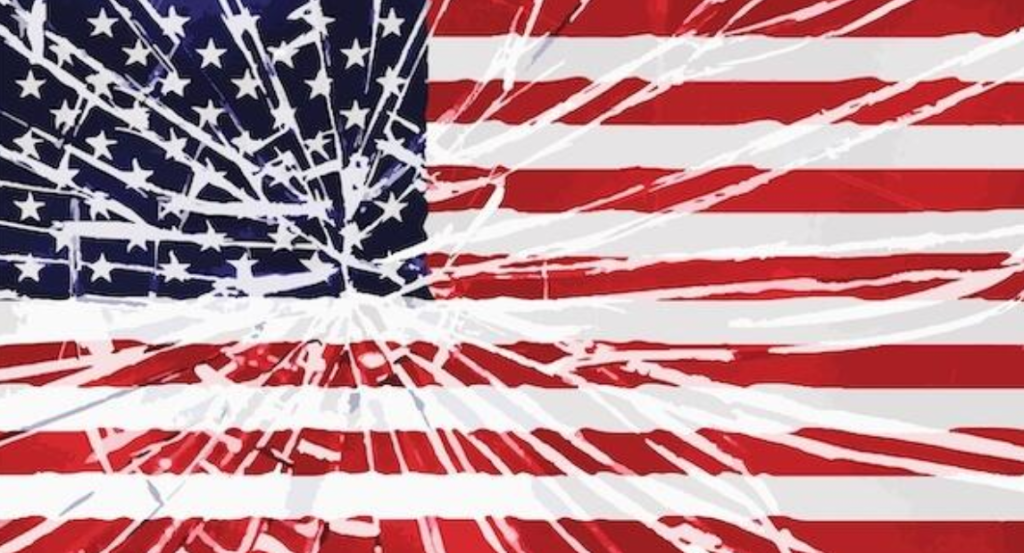The Decline of the American Empire and Rise of Alternatives
For anyone under 75 years of age, the United States has long been viewed as the pinnacle of freedom, prosperity, and innovation. Historically, America has been a beacon of opportunity, reigniting aspirations across various realms, be it technological advancements, arts, or social progress. Despite ongoing critiques of the nation’s trajectory, many Americans still cling to the narrative that the U.S. remains the greatest country in the world. However, this belief is increasingly misaligned with reality. The narrative that “it’s just as bad everywhere else” fails to consider that other nations have been rising while the U.S. has begun its decline—particularly in terms of liberty, a cornerstone of what once made America exceptional.
The contrast between the historical perceptions of America and its current state has become stark over the last few years. Particularly following the 2020 pandemic, government interventions in personal freedoms, medicine, and the economy amplified concerns over civil liberties. Regardless of the origins of the COVID-19 virus, the resultant environment depicted a significant encroachment of governmental control, under the guise of public safety. This prompted drastic measures that not only hampered personal freedoms but also resulted in acute economic suffering, increased unemployment, and widespread business failures. The narrative that blamed the pandemic for these economic troubles provided a convenient deflection from systemic mismanagement, obscuring the deeper issues at play in America’s economic structure and governance.
Many observers believe the American citizenry is becoming increasingly aware of the so-called "Deep State," characterized by a coalition of governmental and corporate interests that have systematically undermined the country’s prosperity, productivity, and civil liberties. Rising levels of national debt and the outsourcing of production have deepened the frustrations of the populace, leading to a growing realization that the American Empire is in a terminal decline. In this context, individuals are grappling with varied responses to the unfolding crisis, reflecting diverse strategies for navigating the tumultuous landscape.
As the collapse intensifies, Americans are gravitating toward different paths. A substantial portion will continue to express dissatisfaction without enacting effective change, opting instead to endure the inevitable decline. Another group, often referred to as "preppers," insists on self-reliance through stockpiling resources for potential catastrophes. Despite their resolve, many remain unprepared for the sophisticated forces of state authority they may challenge. A third, larger group invests hope in the electoral process, repeatedly seeking resolution through political means, regardless of the outcome. Disillusioned by promises unfulfilled, they fail to recognize that neither political party aspires to restore authentic liberty, perpetuating the cycle of decline. Tragically, all these groups share an unfortunate fate; they find themselves casualties of a system shifting away from the values that once defined America.
Among the populations in decline, there exists a relatively small, yet significant, group that chooses expatriation. Unlike the first three groups that grasp for solutions from within a failing system, these individuals seek out more favorable environments outside the U.S. The act of leaving draws parallels to the founding principles demonstrated by early settlers who fled oppressive regimes in Europe to forge a new life centered around independence and self-determination. The historical perspective serves as a guiding ethos for modern-day expatriates. They reject the notion that they can instigate meaningful change from within a corrupt environment, instead striving for geographic and regulatory conditions that align more closely with their values of liberty and personal autonomy.
While many Americans have grown detached from the values of independence and resilience that once characterized the nation, the fourth group represents a return to those roots. This group is pursuing pathways to escape dwindling freedoms, searching for nations where governmental reach has not yet stifled individual potential. The deliberate choice to leave is fueled by a desire to reclaim liberties and opportunities that American citizens perceive as increasingly threatened at home. Despite the challenges such transitions may present, individuals valuing their autonomy recognize that seeking a more favorable jurisdiction represents a viable, if radical, option in the face of systemic decline.
In conclusion, the ongoing American decline demands an examination of identity among citizens and the pathways they choose to pursue in response. While some may resign themselves to a state of helplessness, others may attempt to engage within an increasingly hollow system, and a small group will embark on a journey toward new shores where liberty and opportunities for prosperity still exist. The urgency lies in understanding the implications of living in a society that is losing its grip on the principles that once made it great. As the landscape shifts, those who prioritize their freedom must make calculated choices on whether to fight within existing structures or seek the promise of new beginnings elsewhere.

